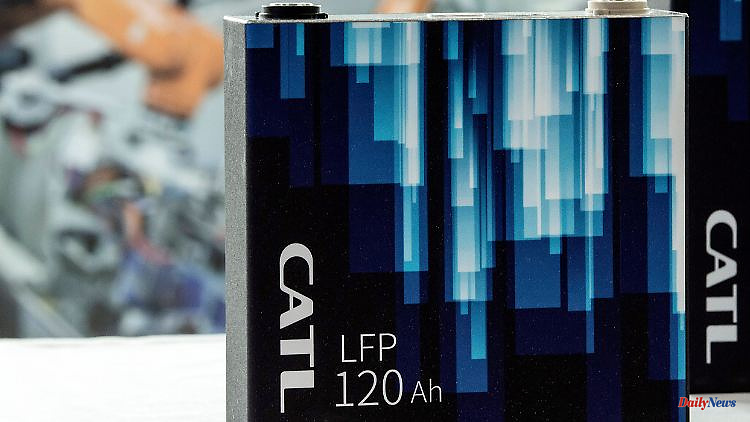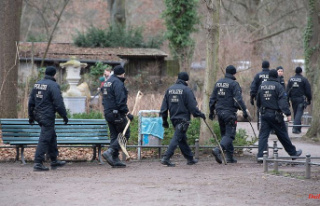Chinese battery cell giant CATL is instigating a battery-level price war. He offers Chinese automakers discounts if they commit to sourcing most of their battery cells from CATL. The group is already being criticized for its dominant position in the market.
The world's largest manufacturer of battery cells for electric cars, whose customers include Volkswagen, BMW and Mercedes-Benz, is flexing its muscles. According to insiders, he is offering discounts to smaller Chinese automakers. According to analysts, the move aims to keep smaller Chinese rivals such as CALB or EVE Energy at bay. "It's very much about market share," said Caspar Rawles, an expert at analyst firm Benchmark Mineral Intelligence. "It's partly, I think, a price war."
But the offer to the carmakers Nio and Zeekr has a catch: According to insiders, in return for the discount, they have to agree to purchase most of their battery cells from CATL. It should be about up to 80 percent that would have to come from CATL, it said. The automakers' negotiations with CATL are ongoing, people familiar with the matter said. CATL did not respond to a request for comment. Nio did not respond either, and the Geely subsidiary Zeekr declined to comment.
In the past, Chinese automakers have sharply criticized CATL for its dominant position in the market. The company has a share of around 37 percent in the global battery cell market. CATL could now take advantage of its stakes in lithium mines and refineries and gain market share through lower prices, said Eric Norris, head of energy storage business at world-leading lithium electric car maker Albemarle. "The price war is on. We saw it at the vehicle level a few weeks ago. We are now seeing it at the battery level."
At the beginning of the year, the world's leading electric car manufacturer Tesla cut the prices for its vehicles by up to a fifth; the Chinese electric car market is suffering from the loss of government purchase premiums. The lower demand does not go unnoticed by the market for lithium carbonate: The price for the important battery raw material in China has fallen by around 30 percent since last year - also because many manufacturers reduced their inventories in view of an expected cooling on the Chinese market.
At the same time, CATL is threatened with stronger competition: the Chinese manufacturer Li Auto has announced that it will use SVolt batteries in its new SUV. Xpeng is working with Sunwoda, NIO is planning to build its own battery factory. But the competition is not standing idle: According to Chinese media reports, SVolt has also offered discounts. SVolt declined to comment, but Reuters was initially unable to confirm these reports.
In 2022, battery cells had become 24 percent more expensive, according to the management consultant Prabhakar Patil, who specializes in the battery industry - after years of becoming cheaper and cheaper. But it is unclear whether western car manufacturers will also benefit from the CATL rebates. "The price reduction that CATL is offering will help the Chinese electric car industry in particular," said James Frith, an expert at battery-focused investment company Volta Energy Technologies. China currently has the leading electric car market and does not want to lose this momentum.
It is unclear how the regulators will react to the CATL rebates. The competent authority stated that employees had spoken to CATL. It is planned to improve cooperation with the company. Details were not given. The topic also has political explosive power: "If some of the electric cars with the discounted batteries end up in Europe, that could lead to tensions in the trade," said investor Frith.












